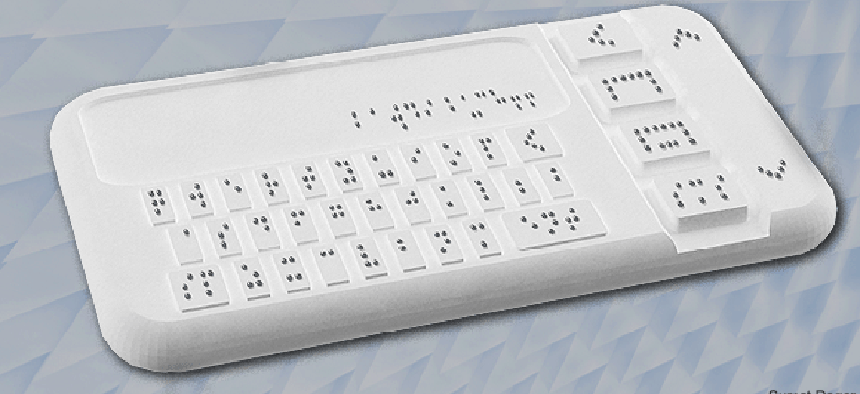World's first Braille smart phone will soon be a reality


Connecting state and local government leaders
A developer in India has produced a mobile device for the visually impaired that expands the range of mobile accessibility.
Several years ago, the FOSE trade show hosted a panel on accessibility in government IT. One question in particular stuck with me to this day: A blind gentleman asked the panelist from Research In Motion (now BlackBerry) when they would put out a BlackBerry for the blind. Of course, back then no one had a good answer for him, even though the question got a near-standing-ovation from the audience.
Well, that question may soon be answered. A developer in India by the name of Sumat Dagar has developed the world’s first Braille smart phone. "This product is based on an innovative 'touch screen' which is capable of elevating and depressing the contents it receives to transform them into 'touchable' patterns," Dagar told the Times of India. He developed this specifically because he saw that technology tended to serve the mainstream and ignore anyone with special needs.
The phone uses Smart Memory Alloy technology to make small pins rise out of the body of the device in patterns, so they could form Braille letters or any other necessary shape. The alloy will form into one of these two states (up or down) depending upon what electrical impulses it gets.
Braille seems to be gradually — very gradually — working its way into the mobile device world. Early in 2012, researchers at Georgia Tech produced a prototype app that uses Braille for touch-screen devices, although the researchers envision that as an app for any smart phone user who wants to text without looking at the screen. And a university student in England has designed a DrawBraille Mobile Phone, but it remains in the concept stage.
Improvements in touch-screen technology, such as the Smart Mobile Alloy in Dagar’s phone or the microfluidics screens from Tactus Technology, could make smart phones for the blind more viable.
Section 508 of the Rehabilitation Act Amendments requires federal agencies to ensure that the electronics and IT products they buy are accessible. With regard to smart phones, it has to date focused on apps. But with mobile devices becoming common tools for employees and citizens, the option for phones that accommodate the visually impaired could become a necessity.




